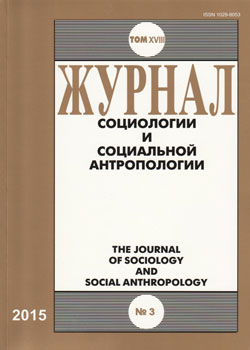The Ethnic Policy in Modern Russia: Political Practices and Institutional Management Resources
Keywords:
ethnic policy, ethnicity, identity, multiculturalism, State, Russia
Abstract
In Russia, home to a large number of different ethnic groups, ethnicity is not only a kind of symbolic and cultural resource, but also a political resource. Moreover, in the past two decades the politicization of ethnicity became significant. The relationships between the State and the ethnic groups, as well as between groups themselves are often conflictive. The country formed a solid legislative framework governing the interaction between the State and the ethnic communities. However, the relations between the doctrinal level, ethnic policy institutions and political practices are contradictory and legal training of officials involved in the regulation of relations between the State and ethnic groups is totally insufficient. The analysis of the existing political practices shows that the current regional institutions of ethnic policy are insensitive to the real problems faced by local communities. They cannot organize an effective monitoring of the existing conflicts and are often unable to resolve them. Being unable to solve problems the ethnic policy institutions are trying to prove their effectiveness by organizing a variety of folk-festival events showing cultural differences. Thus, the institutions designed to implement national policy, i. e., the policy of unity of citizens and policy of strengthening national identity, start contributing to strengthening and politicization of ethnic differences.
Published
2015-05-20
How to Cite
Shabayev, Y., Sadokhin, & Shilov. (2015). The Ethnic Policy in Modern Russia: Political Practices and Institutional Management Resources . ZHURNAL SOTSIOLOGII I SOTSIALNOY ANTROPOLOGII (The Journal of Sociology and Social Anthropology), 18(3), 167–183. Retrieved from http://jourssa.ru/jourssa/article/view/406
Section
Ethnic Policy

